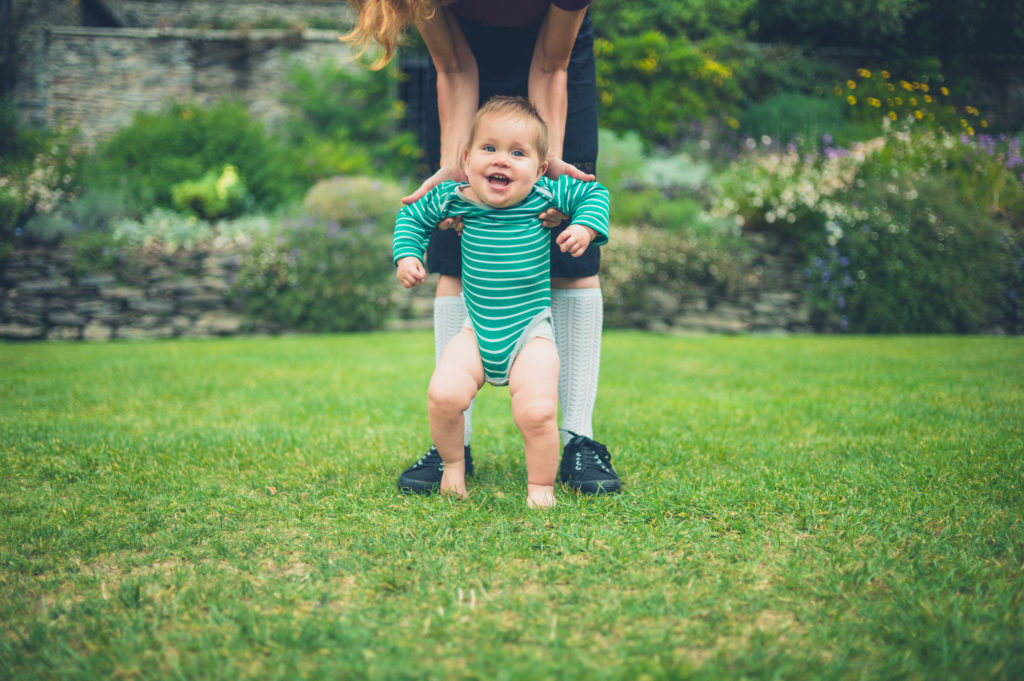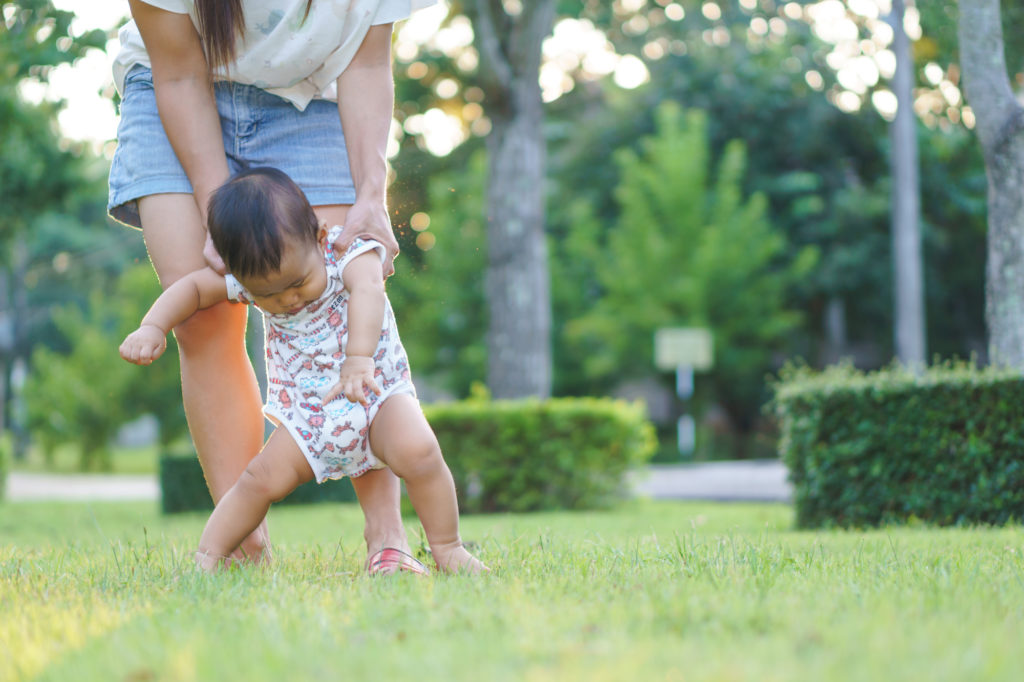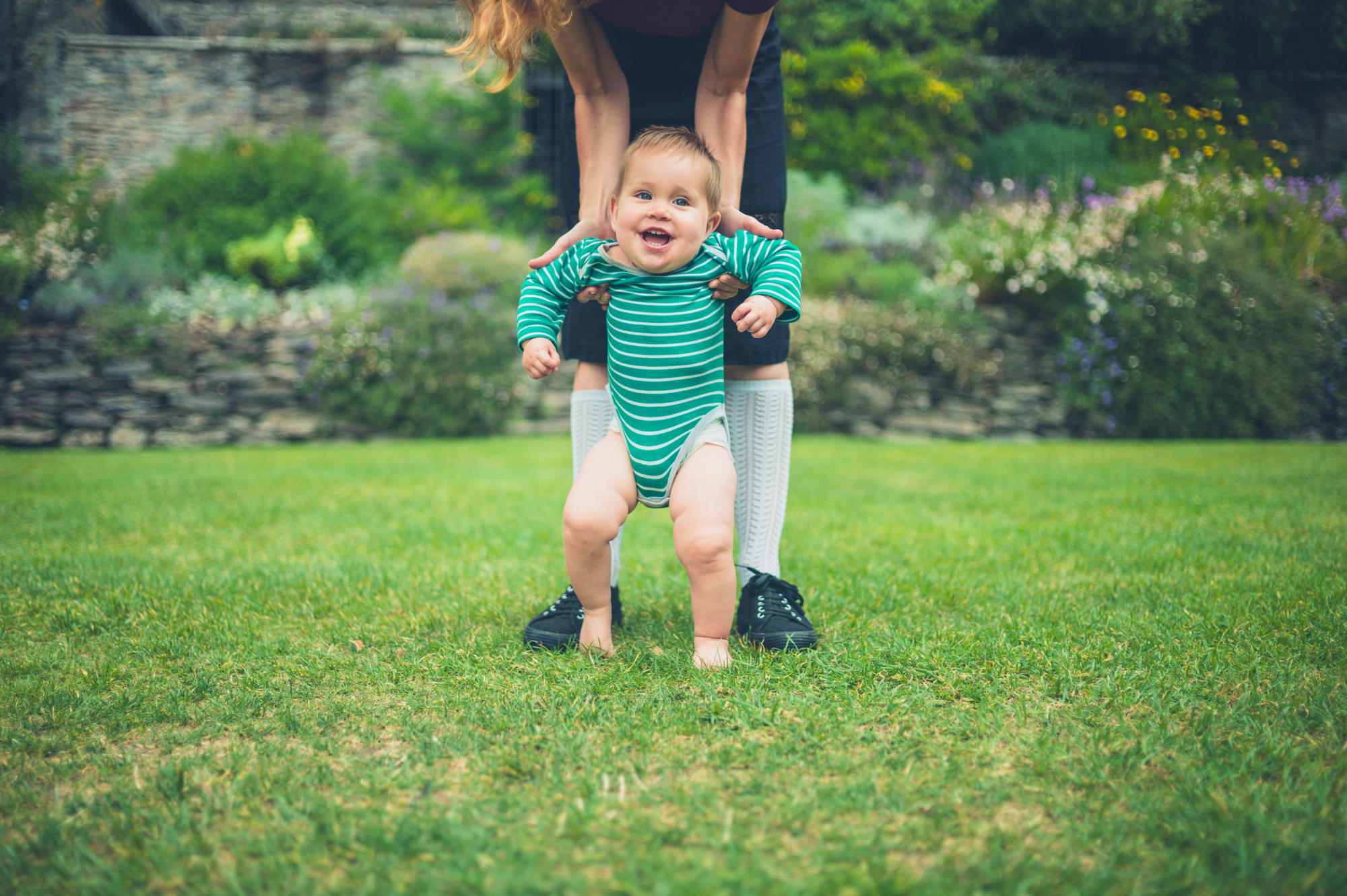Was sind die Gründe für spätes Gehen bei Babys?
There are many reasons why a baby does not walk according to set developmental milestones. Generally, babies may start walking anywhere between the ages of 9-15 months, but in some instances, some babies walk earlier, and some babies walk later than this range.
Wenn ein Baby nicht um 18 Monate selbständig geht, kann eine weitere Beurteilung erforderlich sein, um zu verstehen, warum es eine Verzögerung gibt und einen Grund für diese Verzögerung.
Gehen ist eine grobmotorische Fähigkeit, an der die großen Muskeln der Beine beteiligt sind. In Bezug auf die Entwicklung des Kindes geht es normalerweise voraus, dass man sich umdreht, lernt, unabhängig zu sitzen, zu kriechen, unabhängig zu stehen und Möbel oder andere Requisiten für die Fahrt durch den Raum zu verwenden.
Manchmal kann ein spätes Gehen auf eine Verzögerung in anderen Bereichen der grobmotorischen Entwicklung eines Kindes folgen. Es kann beispielsweise ein spätes Kriechen folgen. Es ist nicht ungewöhnlich, dass Säuglinge beispielsweise das Krabbeln überspringen. Dennoch ist das Gehen eine wesentliche grobmotorische Fähigkeit, und eine Verzögerung bei der Erfüllung kann bei Eltern und Betreuern gleichermaßen Besorgnis auslösen, wenn ein Kind seine anderen wichtigen grobmotorischen Meilensteine mit einer geringfügigen Verzögerung erreicht hat und möglicherweise keine unmittelbare Ursache vorliegt zur Sorge, wenn es um einen späten Wanderer geht.
Einige der Hauptgründe für spätes Gehen bei Babys und Kleinkindern sind:
Hereditary: there may be a link between parents who walked later and consequent delay in their own children’s walking. Some infants walk later, and often there are no underlying causes.
Personality: some infants are in no rush to get walking, and some are more cautious with taking risks needed to master independent walking. They may be content with taking their time and learning developmental steps in their own time. While not measurable as a reason, it is an anecdotal reason for late walking in some infants.
Environment: babies who may have suffered illness or long-term hospitalization at a young age may not have had the opportunities to move and practice their gross motor skills that aid walking. Infants in environments where they are not given the opportunities to move, play on the floor, and use their developing gross motor skills may also experience a delay in walking. It is important that infants are given opportunities to move and play and are not spending extended periods of time in carriers (stroller, baby chair) that limit their ability to move.
Prematurity: babies born early may meet all of their developmental milestones slower. Usually, and depending on the extent of prematurity, babies born early should be tracked against the milestones for their due date and not the date they were born.
A rare disease or genetic syndrome: sometimes a walking delay (combined with other gross motor delays) may be a rare disease sign or symptom. Examples of these include Barth syndrome, Rett syndrome, and Russell-Silver syndrome. If a rare disease is suspected, Genetische Analyse may be recommended to determine the cause of gross motor delay in a child.
Underlying health or physical condition: hypotonia (low muscle tone) is a major cause of walking delay in infants. Hypotonia may also present with a rare disease, Williams’ syndrome as one example. Walking delay is also a sign of mild cerebral palsy.
In den meisten Fällen ist eine Verzögerung des Gehens ohne Verzögerungen in anderen Bereichen der Entwicklung eines Kindes kein Problem. Einige Säuglinge benötigen mehr Anregung und Ermutigung, um die Fähigkeit für sich selbst zu beherrschen.
If you have any concerns about your child’s development, including their walking skills, or indeed concerns about any of their gross motor skills, the first person to contact is your family doctor.









